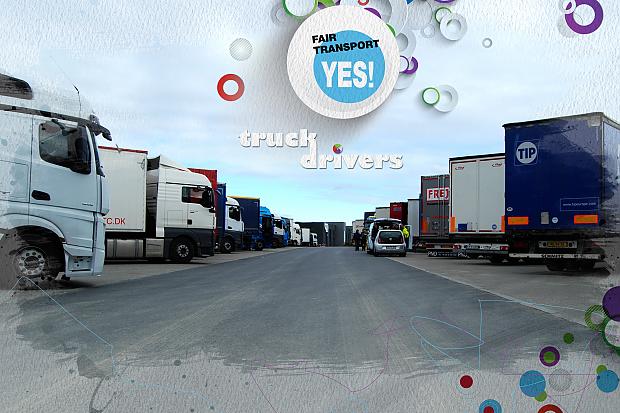Commissioner Bulc’s crocodile tears
Commissioner Bulc’s crocodile tears
Following her appointment in 2014, Slovenian Transport Commissioner Violeta Bulc gave the impression that she would be dealing with the issue of exploitation of lorry drivers. The European transport unions have learnt instead that she is a harsh neoliberal who has no intention of addressing exploitation, but on the contrary, wants to see even fiercer competition between drivers. They are planning to react with action: in two months Bulc’s plans will no longer be provisional; definite proposals will be issued.

Before things get to that stage, the SP’s European Parliament group will be joining in the ruckus with the trade unions, and in the media. What we want to see are not crocodile tears, but real measures from the European Commission to preserve decent jobs. After the last European Parliament elections in 2014, I and a number of like-minded MEPs met on a number of occasions with Commissioner Bulc and her staff. These meetings appeared to promise just what was needed. She seemed genuinely upset when a truck driver who had come with us showed her a series of photographs of abuses perpetrated on the roads: east European drivers who had to cook their own meals next to trucks carrying dangerous substances, as well as being forced to sleep in their cabs, or in containers. We had the impression that she would be tackling these abuses by means of stricter legislation. Recently these contacts have become less frequent. Now we know why: new legislation is certainly being developed, but this will mean a further deterioration in drivers’ working conditions. The true face of Bulc is simply that of an extreme neoliberal. You can forget the tears and the rage.
According to the transport unions, the proposals will involve an easing of the rules on driving hours and rest periods, more nights spent in the cab of the truck will be permitted, and the daily break of three-quarters of an hour will be divided into three breaks of fifteen minutes each. Equal pay for equal work will only apply if detachment (i.e. working in a country other than the one in which the driver is based, normally his or her homeland) exceeds nine days. And so on, with more in the same vein: no tightening of the cabotage rules, no measures to ban the setting up of mailbox companies from which workers may be detached throughout Europe. The Commissioner appears to have caved in under pressure from the big road haulage companies and the eastern European member states. But we won’t be leaving it there. Inside and outside the European Parliament we will be making our voices heard. If this is the ‘social Europe’ about which the Commission is forever speaking, you can keep it.
- See also:
- Dennis de Jong
- Europe
